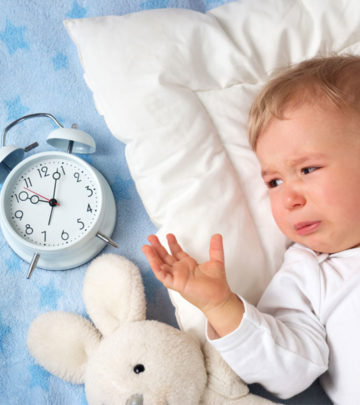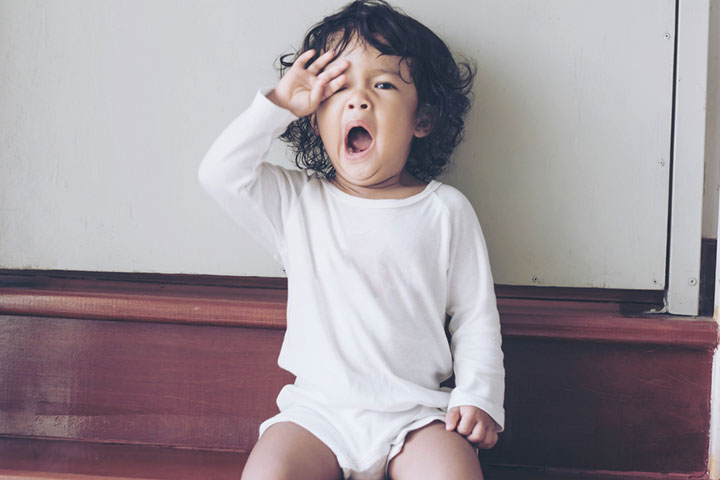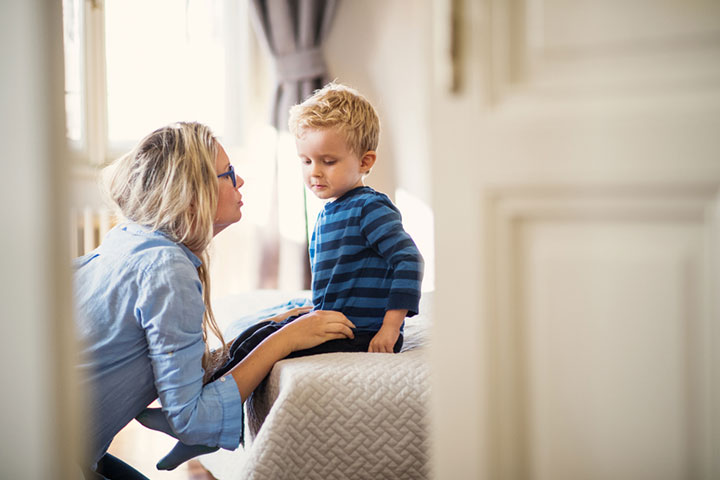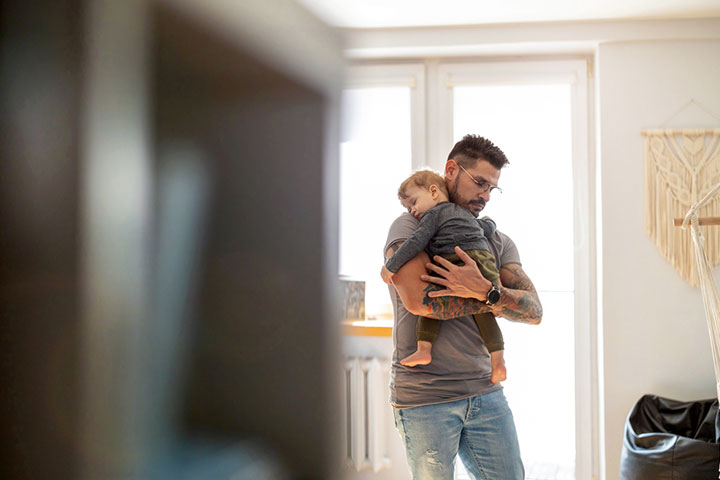
Image: Shutterstock
Everyone gets in a grumpy mood when they haven’t slept enough. The sun seems like an intrusion and talking to people seems impossible. Can you imagine how hard it must be then for your little one to function well when they are overtired and haven’t been able to sleep? Sleepless kids can be a nightmare for parents. They are cranky, annoyed, tearful and do not want to cooperate. Which is why you want them to get the sleep they so desperately need. But there are some times when your child refuses to go down for a nap or go to sleep no matter how exhausted they are. And this only makes them even harder to deal with the next day. So what do you do? Is it even possible for kids to get overtired in the first place? If you want these questions answered then this is the article for you. Keep on reading to find some answers!
What Is Overtiredness?
In order to understand if and why your child is overtired, you first need to know what it is. Overtiredness is when an emotional stage such as anxiety, fear or pain hinders your ability to fall asleep in order to rejuvenate yourself. When someone is overtired, they are unable to go to sleep in spite of being exhausted. This is observed as a type of survival response that is supposed to help us stay awake when we are tired but in dangerous situations. Overtiredness in a way, also helps parents care for their newborns when they are vulnerable and need attention throughout the day and night.
Why Do Babies Need To Sleep So Often?
This all depends on sleep pressure. Sleep pressure is the need to sleep that one feels at the end of the day. The longer you stay awake, the higher the sleep pressure rises. And the higher it gets the easier it is to fall asleep. Eventually, if you stay awake for long enough, you will fall asleep at some point without even meaning to. This sensation of sleep pressure is caused by adenosines which is a build up of chemicals in the brain. These are essentially proteins that are released while we sleep, which then start to build up again when we wake up. For the average adult this process takes around 14 to 16 hours long, after which they need to go to sleep in order to release adenosines. However, a baby’s sleep pressure builds up way faster than an adult and needs to be released more quickly. And this is why babies usually fall asleep every two hours or so. But as your kids get older sleep pressure will start to build up more slowly, allowing them to stay awake for longer periods of time.
How To Help Your Baby To Fall Asleep
1. Help Them Manage Their Emotions
If your little one isn’t able to fall asleep because they are anxious or afraid, then it’s your job to help them resolve these strong emotions. Maybe the last time they dozed off they had a terrible nightmare or maybe they are experiencing separation anxiety and won’t fall asleep for fear of you leaving them alone once they go down. Whatever the reason may be, it’s your job as a parent to talk to your child and help them sort through these emotions. This way they will calm down sooner and drift off to sleep.
2. Physical Contact Can Work Wonders
There’s nothing a good cuddle and some rocking can’t fix for your child. Sometimes all your little one needs in order to feel safe and secure enough to sleep is holding them in your arms and rocking them to sleep. Patting and stroking them on the back also works. Although it’s important to keep in mind that some neurodivergent kids may find touch irritating at times. But for the most part, holding your child and soothing them to sleep will work.
3. Non-contact Methods That Can Work
There are many non-contact methods that can also help put your kids to sleep. It’s all about helping your child relax in order to reduce their stress levels. You can try some slow breathing exercises with them, sing or hum their favorite tune or just gently talk to them. You can also lie down next to them until they’ve calmed down enough to drift off to sleep. Sometimes all your kid needs is your presence and the reassurance that you have their backs. This itself will help them fall asleep.
The next time your child has a meltdown because they are too tired and stressed out to sleep, there’s no need to panic. Now that you know why and how to get your kid to sleep, calming them down and putting them to bed won’t be an ordeal!F
Sources
- Adenosine, NCBI
- Sleep Pressure: Homeostatic Sleep Drive, CDC
- Anxiety and Sleep, NCBI

















